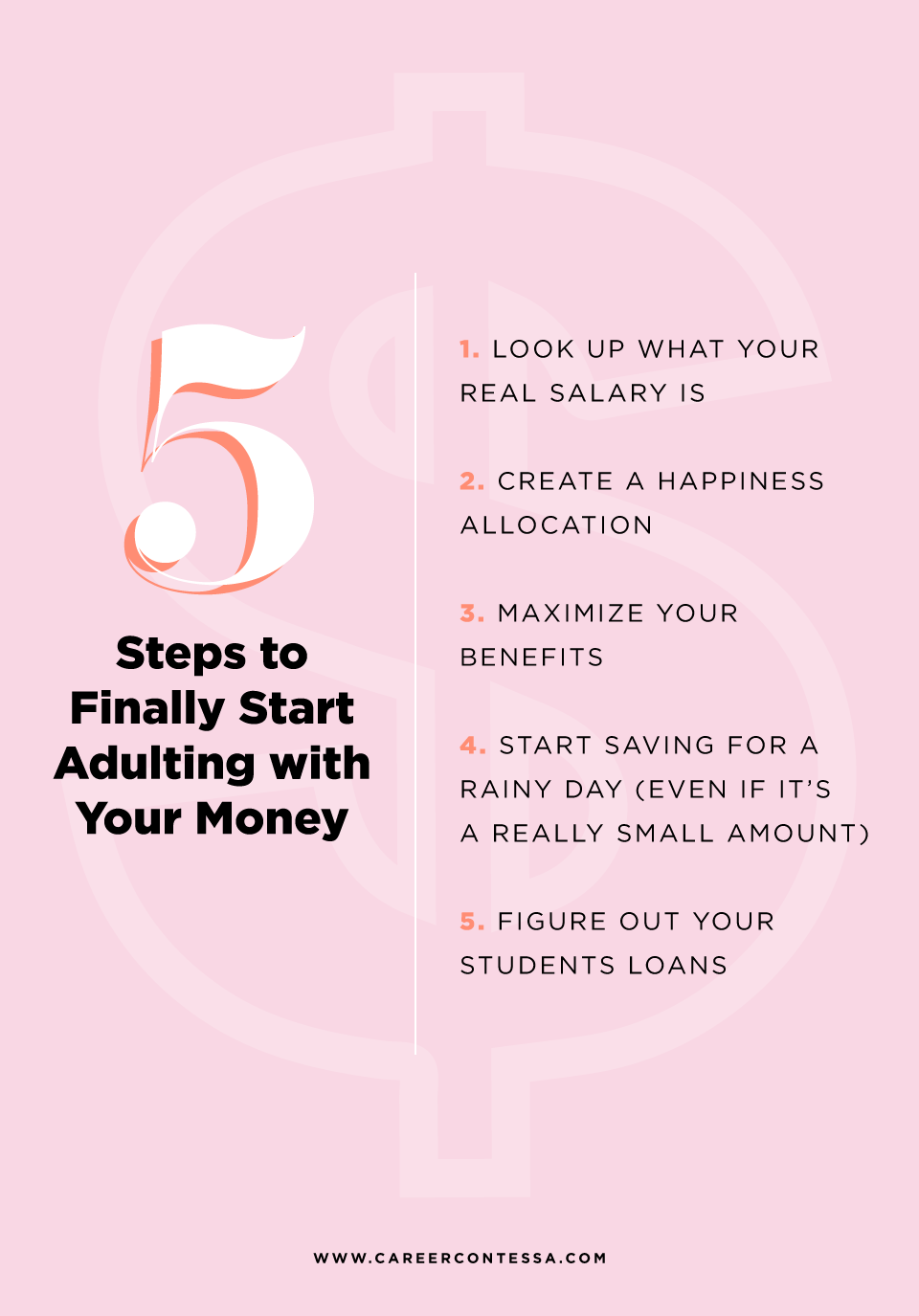When I started my first job, I had no idea what I was doing with my money.
Let’s be real…even four years into my career, I was making mistakes in pretty much every area of my personal finances. Despite studying finance in college and then working as an investment banker and in corporate finance, I really struggled when it came to managing my own money.
What I’ve discovered from my money journey and through my work at my company,
The Fiscal Femme, is that very few people feel confident in this extremely important area of our lives.
Why is it important? To me, money means freedom and equality. When we’re financially well—imagine a nice buffer in our savings accounts—we can
negotiate harder to be paid fairly, we can take risks in our careers, we can leave people and positions when we want to, and we can invest in the things that are important to us.
Pardon this brief interruption, but this is Career Contessa. Join us for this episode of The Career Contessa Podcast where we breakdown even more ways to manage your money (like an adult).
Here are five steps to finally
start adulting in your money life. These are the things I wish I had known and done that would have been game-changers for me. If tackling five steps feels overwhelming, start with one (the easiest one!). Action begets more action and builds momentum.
1. Look up what your real salary is.
One of the saddest realizations in my first job was how much the amount in my bank account differed from the salary I thought I’d be earning. So many of us plan with our salary number in mind but that’ll set us up for disappointment. Use a
paycheck calculator to figure out how much you will actually be earning (i.e., how much will hit your bank account each paycheck). Then we can plan accordingly.
2. Create a happiness allocation.
I hate the word budget.
It physically makes me cringe and conjures up images of staying home alone eating ramen. I believe "happiness allocation" is a much more fitting term—it’s how we decide to allocate our income in the ways that are going to make us the happiest in both the short and long term.
Look at your income on an annual basis. This is what actually hits your bank account multiplied by the number of paychecks you get each year. Then, subtract your annual expenses. Don’t forget things that happen less frequently like vacations, holidays, wedding gifts, and even haircuts. What’s left is what’s available to save for your goals. if this equation doesn’t look pretty at first, don’t fret. For most of us, it doesn’t!
3. Maximize your benefits.
Especially your 401(k). When we start out at any new company, we often get a lot of
information about our benefits as we are trying to hit the ground running in our new jobs. Our benefits can become an afterthought, but they are a very important part of our total compensation. Schedule some time in the calendar to look at what’s offered and make sure to maximize the things that are beneficial to you.
One of the most important benefits (after healthcare!) is our 401(k). Many companies offer 401(k) match which is free additional money when you contribute (up to a certain amount). Even if your company doesn’t offer 401(k) matching, there are tax benefits to contributing to a 401(k) that make it worth it!
4. Start saving for a rainy day (even if it’s a really small amount).
For most of us, how we typically try to save doesn’t work. We get paid, live our lives, and prioritize paying everyone else and then hope there’s money left over for us to save. Guess what? It doesn’t happen. Even when we earn more, we still end up wondering where all of our money is going. Set up an online savings account for your rainy day fund (aka, your "oh $h*t!" money), so it is accessible when you need it but also out of sight and out of mind in the interim. Bonus: you’ll also earn some interest!
Then, set up an automatic transfer to your savings account after each paycheck. If saving sounds impossible, don’t be afraid to start with as little as five dollars.
5. Figure out your student loans.
Know when payments start (if they haven't already) and how much you owe each month (so you can build it into your happiness allocation). If you haven’t already, you’ll want to choose your repayment method as well as fill out the
Public Service Loan Forgiveness (PSLF) if you qualify for loan forgiveness.
Navigating student loans can be confusing and overwhelming—take it one step at a time and don’t be afraid to ask lots of questions!










